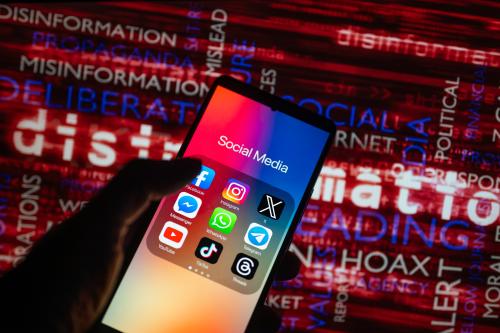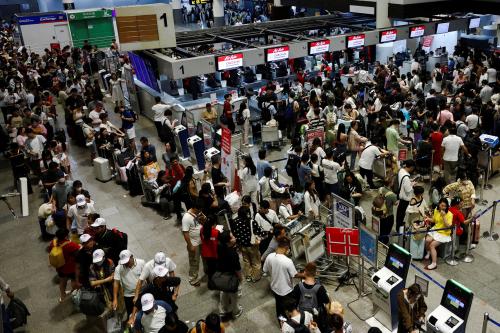For much of China’s imperial age, Confucius served – unwillingly – as a tool of autocratic emperors. Today, China’s new emperors – the leaders of the Communist Party – are again turning to Confucius to build support for their dictatorial rule. However, the Communists can’t ensure their political future by relying on the country’s philosophical past.
Perhaps the greatest tragedy of Confucius’s enduring influence on East Asian civilization is that he has become so intimately associated with authoritarianism. Confucius the historical philosopher spent his life preaching that good government should be based on benevolence and authority must be earned by virtuous acts, not imposed through coercion.
Unfortunately, those lofty ideals were sidelined when Confucius’s teachings became the imperial state’s orthodox ideology. An army of scholar-officials reinterpreted Confucius to suit their royal masters, by stressing virtues like filial piety and conceptualizing society as a strict hierarchy with the emperor at its apex. Confucius became a symbol to convince the masses that the emperors possessed the “Mandate of Heaven” – or the moral right to rule.
It is this imperial Confucius who the Communists think could win them that same Mandate. For much of its existence, the Communist Party had vilified the great sage as a feudal leftover, and during the Mao Zedong years, they tried to purge him from society. But the Communists had a change of heart in the 1980s after the introduction of “socialism with Chinese characteristics” – or what the rest of us call capitalism. The Marxist bombast of Mao sounded out of touch with the affluent times, so the regime required a new ideology to justify its rule.
Confucius seemed the perfect solution. Here was an undeniably Chinese political tradition that, the Communists believed, could uphold their totalitarian rule as it did the emperors’, and at the same time fight off unwanted democratic ideas from the West. State newspapers that had once excoriated the sage instead praised him. Communist leaders litter their speeches with Confucian-sounding terms like “harmony.” The campaign has intensified under current President Xi Jinping, who quotes Confucius and other Confucian thinkers so often he can sound more like a Ming Dynasty mandarin than a modern Marxist. Following in the footsteps of the emperors – literally – he went on a pilgrimage to Qufu, Confucius’s hometown, in 2013, where he committed to study Confucian texts.
Confucius, however, won’t serve the Communists as dutifully as he did the emperors. The Communist Confucian campaign has so far not been intensive enough. In the imperial age, the government pounded its version of Confucian ideals into the minds of the public with relentless perseverance. The only way to pass the grueling exams necessary to enter the civil service was to master the Confucian classics. Confucian mores infused family rituals. Confucius provided a kind of glue to hold society together.
What Beijing is attempting to create today is not a Confucian state but something more like “authoritarianism with Chinese characteristics.” Though Xi Jinping has been advocating that schools teach the Chinese classics, we’re still far from a true revival of Confucian education on a wide scale. Unless the Confucian campaign goes beyond mere slogans and exhortations, it’s hard to imagine Confucius becoming a pillar of a new, Communist-led empire.
Beijing’s Communists are also facing a vastly changed world than their predecessors. During the dynastic period, Chinese civilization had no real challenges from the outside. Invaders like the Mongols were absorbed into Confucian culture. Now Chinese are exposed to all sorts of influences from the Internet, foreign movies and TV programs, and overseas travel and education. That has changed their expectations about government and their ideas on how society should function. Confucius has (and should have) a place as part of this global culture, but that doesn’t mean Beijing’s leaders can impose their own version of a Confucian orthodoxy and shut out unwanted ideas from the rest of the world.
In fact, Confucius could end up mixing with those foreign ideals and generating political tumult. By reintroducing Confucius, the party is encouraging ordinary Chinese to revisit Confucius’s teachings on their own. Confucian schools have opened and book clubs have formed. The Confucius they discover in those pages may not be the Confucius of Xi Jinping, but the Confucius of high moral principles who stood up to the rulers of his day. China’s citizens may compare their leaders today against Confucius’s lofty standards, and find them wanting.
Confucius and the World He Created is available here
More TechTank posts are available on the blogs homepage



Commentary
Why a Confucian revival and the Internet could have unexpected consequences for China
March 4, 2015